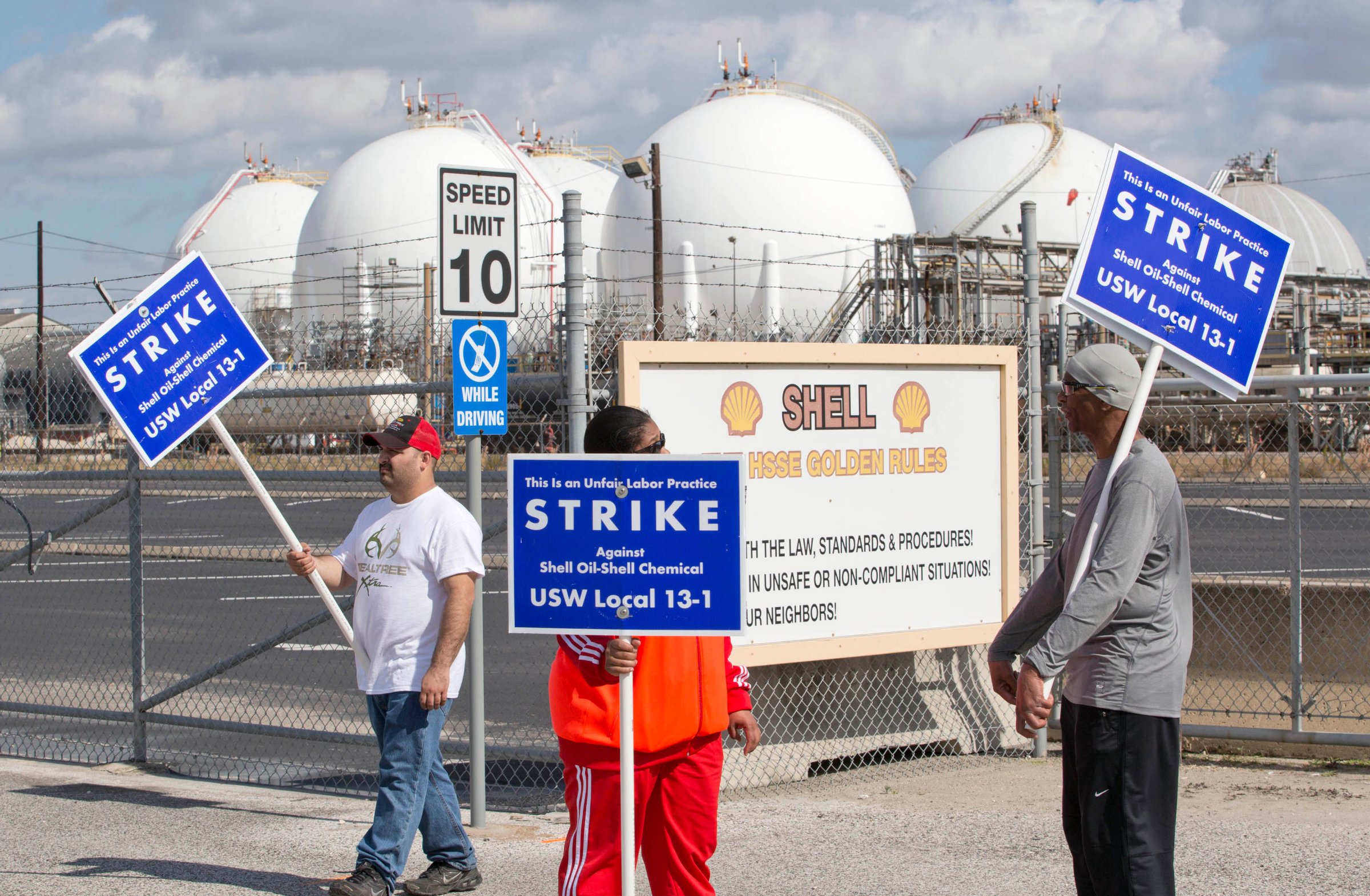
Oil workers in the U.S. began the largest national strike since 1980 on Sunday, after failing to agree on new labor contracts.
The United Steelworkers Union (USW) called for about 3,800 employees to strike in nine sites across the country, affecting plants that account for 10% of the total U.S. refining capacity, reports Bloomberg.
USW failed to agree on five contracts offered by lead negotiators Royal Dutch Shell PLC on behalf of several major oil companies including Chevron Corp. and Exxon Mobil Corp.
When the current contract expired on Sunday, USW said it “had no choice” but to call the walkout after no further deal was reached.
If a full strike of union workers is called, USW says it could disrupt as much as 64% of U.S. fuel production.
Shell said it remained committed to reaching a deal with the union.
But USW, which has been in talks since Jan. 21, feels the oil companies can afford to make the changes it is demanding, which include substantial pay raises and improved safety measures.
“The problem is that oil companies are too greedy to make a positive change in the workplace,” said Tom Conway, USW international vice president of administration. “They continue to value production and profit over health and safety, workers and the community.”
The strike comes at a difficult time in the market as companies cut costs amid a collapse in crude oil prices.
Bloomberg says more refineries are standing by to join the industrial action.
Read next: Oil Prices Changing the Face Of Global Geopolitics
Listen to the most important stories of the day.
See the State With the Cheapest Gas in the U.S.





More Must-Reads From TIME
- The 100 Most Influential People of 2024
- Coco Gauff Is Playing for Herself Now
- Scenes From Pro-Palestinian Encampments Across U.S. Universities
- 6 Compliments That Land Every Time
- If You're Dating Right Now , You're Brave: Column
- The AI That Could Heal a Divided Internet
- Fallout Is a Brilliant Model for the Future of Video Game Adaptations
- Want Weekly Recs on What to Watch, Read, and More? Sign Up for Worth Your Time
Write to Helen Regan at helen.regan@timeasia.com